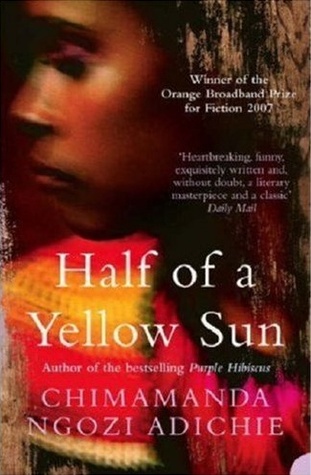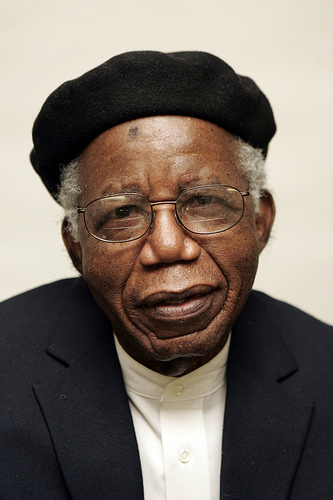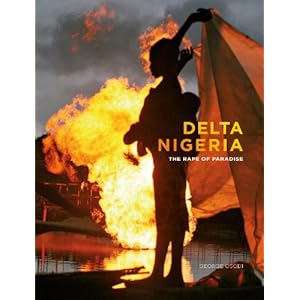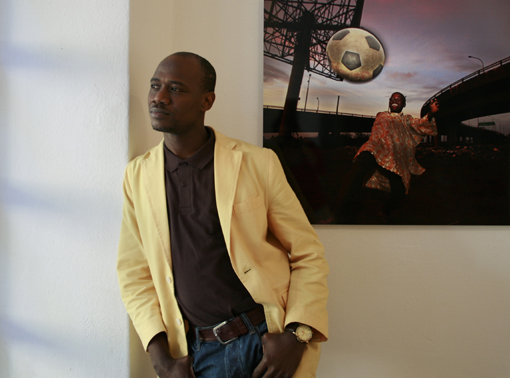
Review
`The first great African novel of the new century' Alison Lurie
--Guardian Books of the Decade, 2007
Independent
'This magnificent novel is a gripping portrayal of the horrors of
war...A major new African voice.'
The Times
'a powerfully convincing account of one of the bloodier episodes
of post-colonial history.'
Daily Mail
'...funny, heartbreaking, exquisitely written and, without doubt, a literary masterpiece and a classic.' --This text refers to an out of print or unavailable edition of this title.
Independent
'A magnificent novel.' --This text refers to an out of print or unavailable edition of this title.
Guardian
'Adichie is part of a new generation revisiting the history that her parents survived...' --This text refers to an out of print or unavailable edition of this title.
The Works Magazine
'Full of drama and characters you care about, this is an educational and enlightening read.' --This text refers to an out of print or unavailable edition of this title.
The Times
'Adichie uses language with relish. Adichie's English is infused with rich poetry.' --This text refers to an out of print or unavailable edition of this title.
Telegraph
'What a travesty that Half of a Yellow Sun is not in contention for the Booker prize this year.' --This text refers to an out of print or unavailable edition of this title.
Sunday Times
'The novel sustains the interest with its engaging characters and its mostly artful simplicity of style.' --This text refers to an out of print or unavailable edition of this title.
Product Description
Winner of the Orange Broadband Prize for Fiction 2007, this is a heartbreaking, exquisitely written literary masterpiece. This highly anticipated novel from Chimamanda Ngozi Adichie is set in Nigeria during the 1960s, at the time of a vicious civil war in which a million people died and thousands were massacred in cold blood. The three main characters in the novel are swept up in the violence during these turbulent years. One is a young boy from a poor village who is employed at a university lecturer's house. The other is a young middle-class woman, Olanna, who has to confront the reality of the massacre of her relatives. And the third is a white man, a writer who lives in Nigeria for no clear reason, and who falls in love with Olanna's twin sister, a remote and enigmatic character. As these people's lives intersect, they have to question their own responses to the unfolding political events. This extraordinary novel is about Africa in a wider sense: about moral responsibility, about the end of colonialism, about ethnic allegiances, about class and race; and about the ways in which love can complicate all of these things.
From the Publisher
The Stories of Africa: a Q & A with Chimamanda Ngozi Adichi
Q: What led you to write a book about the Nigeria-Biafra war?
I wrote this novel because I wanted to write about love and war, because I
grew up in the shadow of Biafra, because I lost both grandfathers in the
Nigeria-Biafra war, because I wanted to engage with my history in order to
make sense of my present, because many of the issues that led to the war
remain unresolved in Nigeria today, because my father has tears in his eyes
when he speaks of losing his father, because my mother still cannot speak
at length about losing her father in a refugee camp, because the brutal
bequests of colonialism make me angry, because the thought of the egos and
indifference of men leading to the unnecessary deaths of men and women and
children enrages me, because I don't ever want to forget. I have always
known that I would write a novel about Biafra. At 16, I wrote an awfully
melodramatic play called For Love of Biafra. Years later, I wrote short
stories, That Harmattan Morning, Half of a Yellow Sun and Ghosts, all
dealing with the war. I felt that I had to approach the subject with little
steps, paint on a smaller canvas first, before starting the novel.
Q: Given that at the time of the war you hadn't yet been born, what sort of
research did you do to prepare for writing this book?
I read books. I looked at photos. I talked to people. In the four years
that it took to finish the book, I would often ask older people I met,
`Where were you in 1967?' and then take it from there. It was from stories
of that sort that I found out tiny details that are important for fiction.
My parents' stories formed the backbone of my research. Still, I have a lot
of research notes that I did not end up using because I did not want to be
stifled by fact, did not want the political events to overwhelm the human
story.
Q: Are memories of the Nigeria-Biafra war still alive in Nigeria, talked
about on a regular basis, or do you feel that the conflict is being lost to
history as time passes and that it becomes less important to Igbo culture?
The war is still talked about, still a potent political issue. But I find
that it is mostly talked about in uninformed and unimaginative ways. People
repeat the same things they have been told without having a full grasp of
the complex nature of the war or they hold militant positions lacking in
nuance. It also remains, to my surprise, very ethnically divisive: the
(brave enough) Igbo talk about it and the non-Igbo think the Igbo should
get over it. There is a new movement called MASSOB, the Movement for the
Actualization of the Sovereign State of Biafra, which in the past few years
has captured the imagination of many Igbo people. MASSOB is controversial;
it is reported to engage in violence and its leaders are routinely arrested
and harassed by the government. Still, despite its inchoate objectives,
MASSOB's grassroots support continues to grow. I think this is because it
gives a voice to many issues that have been officially swept aside by the
country but which continue to resonate for many Igbo people.
Q: The book focuses on the experiences of a small set of people who are
experiencing the conflict from very different points of view. When we step
into their individual worlds, we don't know their every thought - the
narrator who follows them isn't omniscient - but rather we seem to see and
understand them through a film. Can you describe your narrative style and
why you framed these characters the way you did?
I actually don't think of them as being seen through a `film'. I have
always been suspicious of the omniscient narrative. It has never appealed
to me, always seemed a little lazy and a little too easy. In an
introduction to the brilliant Italian writer Giovanni Verga's novel, it is
said about his treatment of his characters that he `never lets them analyze
their impulses but simply lets them be driven by them'. I wanted to write
characters who are driven by impulses that they may not always be
consciously aware of, which I think is true for us human beings. Besides, I
didn't want to bore my reader - and myself - to death, exploring the
characters' every thought.
Q: The character Richard is a British white expatriate who considers
himself Biafran, drawing a certain amount of quiet- and some loud-
criticism for his self-proclaimed identity. Another key narrator, Ugwu, is
a 13-year-old houseboy who reacts rather than acts. Both are interesting
choices for characters for the narrator to `shadow'. Why did you pick
them?
Ugwu was inspired in part by Mellitus, who was my parents' houseboy during
the war; in part by Fide, who was our houseboy when I was growing up. And I
have always been interested in the less obvious narrators. When my mom
spoke about Mellitus, what a blessing he was, how much he helped her, how
she did not know what she would have done without him, I remember being
moved but also thinking that he could not possibly have been the saint my
mother painted, that he must have been flawed and human. I think that Ugwu
does come to act more and react less as we watch him come into his own.
Richard was a more difficult choice. I very much wanted somebody to be the
Biafran `outsider' because I think that outsiders played a major role in
the war but I wanted him, also, to be human and real - and needy!
From the Author
In the Shadow of Biafra
by Chimamanda Ngozi Adichie
I taught an introductory creative writing class at Princeton last year and,
in addition to the classic `show don't tell', I often told my students that
their fiction needed to have `emotional truth'. I am not sure whether they
knew exactly what `emotional truth' meant. Sometimes I was not sure that I
did either, or perhaps it was simply that I could never fully define it. I
could, however, recognize it whenever I saw it: a quality different from
honesty and more resilient than fact, a quality that existed not in the
kind of fiction that explains but in the kind of fiction that shows. All
the novels I love, the ones I remember, the ones I re-read, have this
empathetic human quality. And because I write the kind of fiction I like to
read, when I started Half of a Yellow Sun, set before and during the
Nigeria-Biafra war of 1967-1970, I hoped that emotional truth would be its
major recognizable trait.
I hoped, too, that it would be the kind of character-driven war novel brave
enough to engage subtly with politics, as the Zimbabwean writer Shimmer
Chinodya does in his remarkable Harvest of Thorns. What struck me most
about Harvest of Thorns was that I emerged from it with a complex portrait
of Zimbabwe's war of independence from - at last - the point of view of
black Zimbabweans without ever feeling as if I had been lectured. The
wonderfully restrained sense of deep disappointment underlying Chinodya's
narrative reminded me of how similar the histories of many African
countries are, how passionately people believed in ideas that would
eventually disappoint them, in people that would betray them, in futures
that would elude them. The Biafra stories in Chinua Achebe's Girls at War
and Other Stories are also about what happens when the shiny things we once
believed in begin to rust before our eyes. Achebe's trademark compassionate
irony - he respects his characters but at the same time is amused by them
and expects the reader to be also - is not very obvious in Sugar Baby,
which is the best piece of fiction I have read about Biafra. It starts with
the narrator watching his friend Cletus fling a handful of sugar out of the
window. A symbolic act: Cletus is an unqualified sweet tooth (something he
must have developed as a student living in Ladbroke Grove) and the
unbearable sugar scarcity in Biafra led to humiliations, one involving the
loss of his girlfriend, another the rage of an Irish priest. Now that the
war is over, Cletus and his friends are eager to tell self-flagellating
stories of hardship, they `had become in those days like a bunch of old
hypochondriac women vying to recount the most lurid details of their own
special infirmities.' The narrator is reluctant to join in. For him, there
is something still too painful, too sacred, about their recent history; he
is not yet ready to laugh at the once-shiny rusted things.
Girls at War portrays a world inhabited by people who feel their
metaphysical losses more strongly than their material ones. Their
disillusion, their manic self-mockery, their fixation on survival, are all
corollaries of their deep faith in their cause. Achebe's war fiction then,
humane and pragmatic as it is, becomes an oblique paean to the
possibilities that Biafra held. The stories have an emotional power that
accumulate in an unobtrusive way and stun the reader at the end; there are
sentences in them that will always move me to tears.
Successful fiction does not need to be validated by `real life'; I cringe
whenever a writer is asked how much of a novel is `real'. Yet, I find
myself thinking differently about these two war novels I admire. I have
often wondered how much of the character Benjamin in Harvest of Thorns
mirrors Shimmer Chinodya, how much of the muted defeat in Girls at War is
in fact what Chinua Achebe himself felt about the loss of Biafra. Perhaps
it is because to write realistic fiction about a war, especially one
central to the history of one's country, is to be constantly aware of a
responsibility to something larger than art. While writing Half of a Yellow
Sun, I enjoyed playing with minor things: inventing a train station in a
town that has none, placing towns closer to each other than they are,
changing the chronology of conquered towns. Yet I did not play with the
central events of that time. I could not let a character be changed by
anything that had not actually happened. If fiction is indeed the soul of
history, then I was equally committed to the fiction and the history,
equally keen to be true to the spirit of the time as well as to my artistic
vision of it.
The writing itself was a bruising experience. I struggled to maintain many
fragile balances. I cried often, was frequently crippled with doubt and
anxiety, often wondered whether to stop or to scale back. But there were
also moments of extravagant joy when I recognized, in a character or moment
or scene, that quality of emotional truth.
About the Author
Chimamanda Ngozi Adichie was born in Nigeria in 1977. She is from Abba, in Anambra State, but grew up in the university town of Nsukka, where she attended primary and secondary schools. She went on to receive a BS in Communication and Political Science from Eastern Connecticut State University and an MA from Johns Hopkins University, both in the United States. Her short fiction has been published in literary journals including Granta, and won the International PEN/David Wong award in 2003. 'Purple Hibiscus', her first novel, was shortlisted for the Orange Prize and the John Llewellyn Rhys Prize and was winner of the Hurston/Wright Legacy award for debut fiction. She was a Hodder fellow at Princeton University for the 2005-2006 academic year. She lives in Nigeria.
















